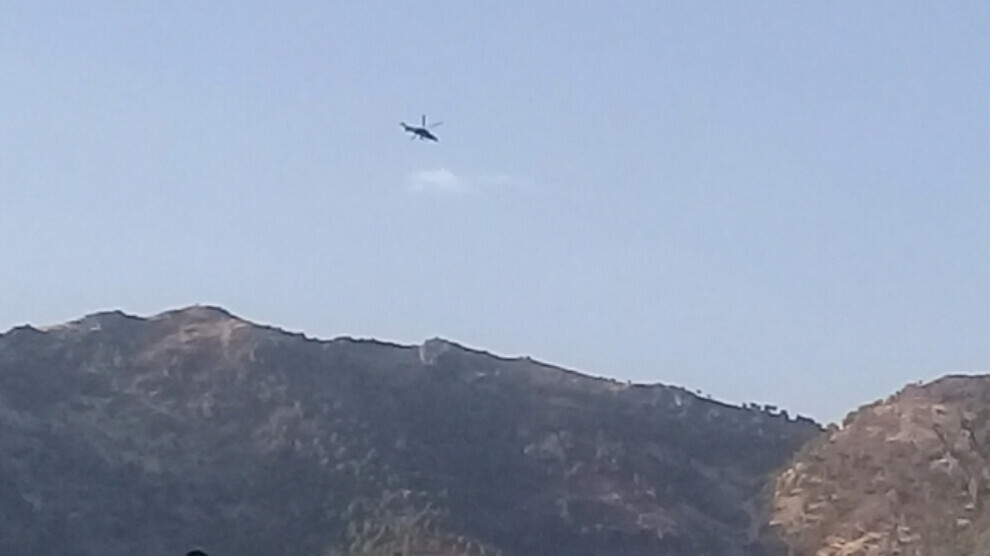Turkey’s attacks on South Kurdistan continue
The Turkish state continues its all-out attacks as part of its genocidal war against the Kurdish people in various parts of Kurdistan.
The Turkish state continues its all-out attacks as part of its genocidal war against the Kurdish people in various parts of Kurdistan.

The Turkish army carried out further attacks in southern Kurdistan (northern Iraq) on Monday. According to reports, Turkish attacks targeted the areas of Rubi, Ruwal, Tarstaw, Hewreben and Kanyeba in the Bradost region in the countryside of Hewler (Erbil).
The Turkish army has been conducting cross-border military operations into Iraqi territory since 1983. The last phase of these operations, which began on April 23rd, 2021, marks a new phase of Turkey’s regional policies and aims at occupying large swathes of Kurdish land within Iraqi territory. Recent military operations have specifically concentrated in the areas of Avashin, Zap, and Metina, which are the rural and mountainous areas of Amadiya and Duhok. As a result, most civilians have fled the area, turning it into a no-man’s-land.
The PKK guerrillas which have been in the area for nearly 40 years have hindered the Turkish army’s advance. Unable to break the defense lines of the guerrillas, the Turkish army has indiscriminately used chemical weapons, affecting both the guerrillas and the civilian population. There are claims that the Turkish army is deploying weapons prohibited by the OPCW. These claims are increasingly being supported by video footage and various reports and personal accounts which have been circulating in the media for months. According to current information, it has been determined that chemical weapons were used at least 323 times in the last period of six months between 23th April (when the conflict escalated) up to 23th October 2021. During this period, 38 guerrillas lost their lives as a result of chemical attacks.
Another six guerrillas lost their lives in an attack with chemical weapons that took place in the area known as Girê Sor, on September 3, 2021, but three guerrillas survived despite being harmed. The three guerrillas who survived the attack gave concrete information about the smell, taste, and effects of the gas. They also conveyed their observations on the situation of the guerrillas who lost their lives. Civilians in the Behdinan region, which was turned into a conflict area, were also taken to different hospitals because they were affected by the chemical weapons.